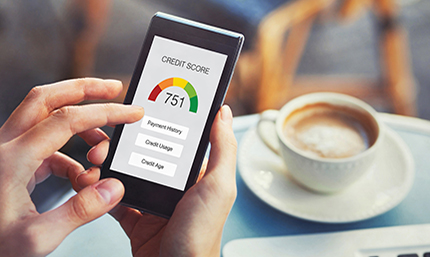News & Tips
How Do Credit Card Balance Transfers Help Slash Debt?

If you carry a large outstanding debt, especially with a credit card that has a high interest rate, then transferring your balance to a different credit card may help you cut down on debt. Before moving forward with a balance transfer, take your time shopping for a new card, consider the pros and cons, and have a plan in place to pay off the debt. Read on to learn all that and more!
What is a credit card balance transfer?
A credit card balance transfer is a transaction where your new credit card issuer moves outstanding debt to a different credit card. In most cases, credit card providers will only transfer debt from a credit card, but sometimes, they’ll transfer debt from loans too.
Ideally, you’d move the debt to a credit card with an interest-free introductory period, allowing time for you to pay off the debt without accruing more interest.
Some credit cards require a balance transfer fee, which is typically 3%-5% of the transfer amount or a flat amount, but Space Coast Credit Union (SCCU) doesn’t have any credit card balance transfer fees.
Benefits of Transferring a Credit Card Balance
Let’s take a look at the pros of transferring a credit card balance:
- Transferring a credit card balance to a card with 0% APR* can allow you to time avoid accruing more interest on an outstanding amount and give you time to pay off debt faster.
- By paying off your debt and making payments on time, you have a better chance of improving your credit score.
- With some credit cards, you can transfer balances from multiple credit cards to help you pay off the outstanding debt with one monthly payment.
Disadvantages of Transferring a Credit Card Balance
Here are some potential cons of a credit card balance transfer:
- Your credit takes a hard hit when you apply for a new credit card. Learn more about getting a good credit score here.
- If you choose a credit card with a balance transfer fee, you may be paying more with the transfer than what you could be saving by staying with your current credit card’s rate.
- You may be unable to pay off the debt before the APR* returns to a new rate, which could be higher than the rate you had with your old credit card. Note – be sure to mark your calendar the date of the end of the interest-free introductory period.
Should you close your old credit card?
It’s not a good idea to close out a credit card, even if you’ve paid it off. Credit history makes up 15% of your overall credit score, and closing an old credit card could drop your score. Additionally, closing a credit card would reduce your overall credit limit and could impact your credit utilization score.
How to Know if Transferring a Credit Card Balance is for You
Whether or not a balance transfer is right for you depends on a number of factors, such as interest rates, length of the interest-free introductory period, any balance transfer fees, and the outstanding debt amount. Thankfully, this balance transfer calculator can help!
Let’s take a look at an example to see how much you can save on interest by transferring to a credit card with an interest-free introductory period.
Current credit card:
- Current credit card balance: $2,500
- Interest rate: 22%
- Monthly payment: $450
New credit card:
- Balance transfer fee: 0%
- Intro period: 6 months
- Introductory rate: 0%
- Standard rate: 17% APR*
Total interest saved: $161.09
See more financial calculators for debt consolidation, loans, budgeting, saving, and more!
How to Select the Best Credit Card for a Balance Transfer
As you’re shopping for the best credit card for a balance transfer, here are some key features to look for:
- No balance transfer fee
- 0% introductory APR* (at least 6 months is ideal) specifically for balance transfers
- A low standard interest rate (after the interest-free introductory period ends)
Additionally, as this is a credit card you’ll likely want to keep for years to come, be sure to look for:
- Any other fees, such as annual fees or cash advance fees
- Fraud prevention features
- Rewards programs
Here’s more information about choosing the best credit card to fit your needs.
How to Do a Credit Card Balance Transfer
Ready to get started with a credit card balance transfer? Here are the steps you’ll need to take:
1. Check your credit score. You can check your FICO® Score at SCCU for free in your Online or Mobile Banking account and your credit reports for free once a year at annualcreditreport.com. The higher your credit score, the better chance you’ll have for a lower interest rate for your credit card after the interest-free introductory period ends.
2. Shop for a credit card. In most cases, you can’t transfer a balance to a new credit card under the same credit card provider. Talk to the credit card provider about their minimum credit score and balance transfer requirements.
3. Apply for the credit card. It’s best to apply for only one credit card for your balance transfer, as an application is a hard hit to your credit score. Also, too many applications in a short period of time can also negatively impact your score. You can get started applying for a credit card at SCCU here.
4. Begin the balance transfer. You’ll need to request the amount you want to transfer and provide existing credit card account information. It can take a couple of weeks to for the payment to process. Keep making payments on the old account balance while the transfer is in process.
Then, it’s time to put every penny you can towards slashing that credit card debt! Be sure to continue making credit card payments on time to have the best chance to improve your credit score.
Why Apply for a Credit Card at Space Coast Credit Union?
While banks usually have higher credit card interest rates and fees, you won’t have to worry so much about those with a credit union because they’re not-for-profit co-operatives.
Here are some of the highlights of credit cards at SCCU:
- No balance transfer fees and no annual fees with any of our credit cards.
- Credit card rates at SCCU do not exceed 18% APR*.
- Visa Signature®45, Visa® Platinum13, and Visa® Low Rate44 credit cards have a 0% APR* for 6 months.
- Visa Signature® offers a points program43 and Visa® Platinum offers a cashback program33, so you can earn rewards on every purchase!
- Fraud prevention features: Manage Cards in Online & Mobile Banking, free 2Way Text Fraud Alerts, and Visa® Zero Liability Protection14
- Digital wallet mobile payment options
If you live or work in any of these 34 counties in Florida or you have a family member at SCCU, you can become a member of SCCU and consider getting a credit card with us for your balance transfer.
Additional Debt Consolidation Strategies
If you believe you need more time to pay off debt or have other outstanding debt you’d like to pay off at a lower interest rate, feel rest assured that you have options!
You may be able to refinance your home or car loan or bundle outstanding debts into a personal loan or a home equity loan at a lower interest rate.
Keep in mind that before moving forward with consolidating debt, you may want to consider meeting with a credit counselor to help you come up with a game plan.
Learn more about how to consolidate debt here.
More About Space Coast Credit Union
SCCU is the third-largest credit union in Florida, serving 34 counties throughout Florida with Online and Mobile Banking and more than 60 branches. We offer a financial suite of credit cards, checking and savings accounts, certificates of deposit (CDs), home loans, auto loans, small business accounts and loans, digital banking options, and personal loans. We also offer helpful resources for financial wellness and fraud prevention.






















































